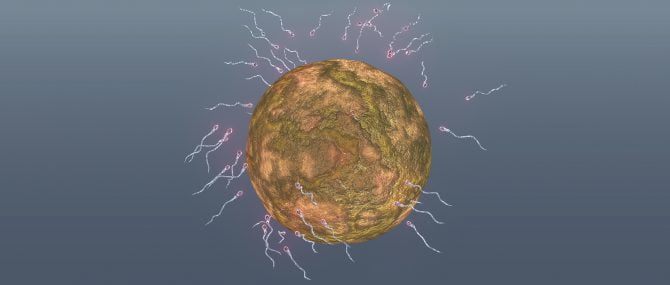Sperm donation is a commonly sought-after fertility treatment among individuals and couples wishing to create a family. When donor sperm is used, the treatments of choice can be either artificial insemination or in vitro fertilization (IVF).
There are many reasons as to why someone may need to turn to sperm donation:
- Heterosexual couples with poor-quality sperm
- Lesbian couples
- Single women wishing to have a baby on their own
Regardless of the reason behind and the fertility treatment of choice, the law that regulates the application of assisted reproductive technologies establishes that sperm and egg donors must remain anonymous and act altruistically.
Identity of the sperm donor
The Law 69 (I)/2015 is the current regulation in Cyprus on this matter, thanks to which female and male gamete donations are done in accordance with the current legal framework. One of its main provisions is the one stating that sperm donations should be based upon the anonymity of the donor.
Thus, the patient and the donor-conceived child will not be able to have access to identifying information on the donor, such as address, pictures, full name, etc. However, they can get general data about him, mainly related to its phenotypical characteristics, e.g. eye and hair color, skin tone, height, weight, educational level, etc.
Also, sperm donors are not allowed to get information or meet the intended parents or the child born thanks to the donation, with whom he shares his genetic code.
In spite of all this, Cypriot regulations do allow prospective parents choose who they want their donor to be as long as his identity remains undisclosed. The donor selection process is in the hands of the fertility center chosen by the patients.
It is important for prospective parents to keep in mind that every candidate accepted into the sperm donation program meets the following general requirements:
- They are young men, aged 45 or less. Nonetheless, some clinics may have established their own criteria regarding the age limit, which may have established a lower age at which candidates can be accepted.
- They have passed a thorough psychological screening proving they are actually capable of becoming sperm donors.
- They are young and free from genetic and infectious diseases likely to be inherited by offspring.
- The quality of their semen sample is greater than the average.
Sperm donation
As explained above, when donor sperm is necessary, two assisted reproductive technologies can be used:
- Intrauterine insemination (IUI): It consists in placing the sample of an anonymous donor inside the intended mother's uterine cavity. Sperms are expected to travel through the female reproductive system and fertilize the egg, thereby leading to the creation of an embryo that is able to implant.
- In vitro fertilization (IVF): Once the eggs are retrieved, they will be fertilized using donor sperm. After that step, high-quality embryos will be selected for being transferred to the intended mother's womb, waiting for them to be capable of properly implanting and lead to a successful pregnancy.
With egg donation, one cannot choose between one technique or another, since in the case of IUI the eggs used can only be those from the intended mother, as fertilization occurs in her organism.
We make a great effort to provide you with the highest quality information.
🙏 Please share this article if you liked it. 💜💜 You help us continue!




OMG, I wouldn’t like a 44-year-old guy to contribute a semen sample for my wife… I used to refuse sperm donation as a solution in these cases, and finally I realized it was worth it as it is the only way for us to become parents, but now… What else can I say? Maybe we’re better off like this… or at least I don’t think we’re visiting Cyprus when we do it (if we do so).